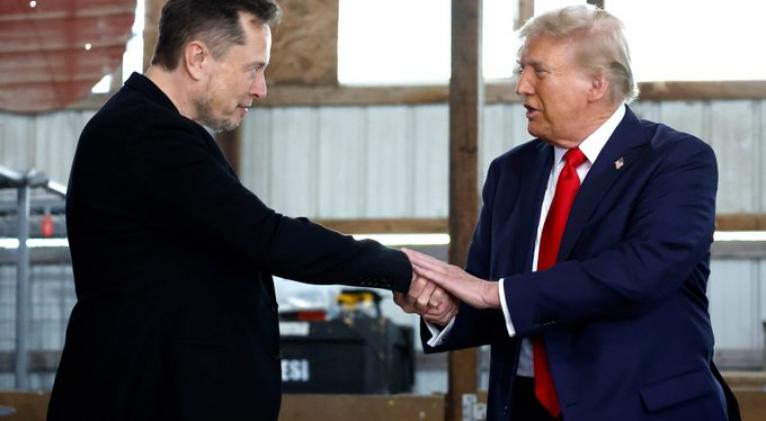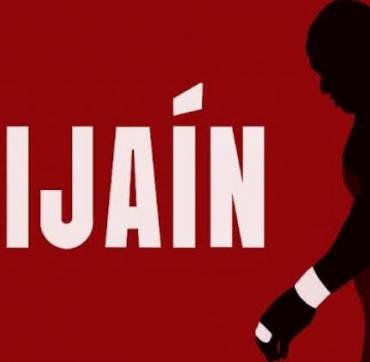How Europe is preparing for a possible second Trump presidency
especiales

BERLIN — Washington’s closest allies in Europe are bracing for a possible rupture of transatlantic relations in the event former president Donald Trump prevails in Tuesday’s election.
Having experienced one Trump presidency, European policymakers say they are more prepared for a second. They know the diplomatic dance required, and they are crafting various contingency plans on security and trade.
Yet preparedness, they say, has not dimmed concerns about a leader who has threatened to upend the NATO alliance, vowed steep import tariffs and said he would pull the United States out of the Paris climate agreement again.
And in some ways, they concede, Europe is less equipped to deal with Trump now than it was before.
The last time he was in the White House, Trump ran up against “Europe’s decider”: Germany’s stalwart Chancellor Angela Merkel. But the continent has no leader of her stature to serve as a counterweight today. French President Emmanuel Macron is politically weakened, having lost his governing majority. German Chancellor Olaf Scholz’s is mired in coalition infighting and confronting a far-right resurgence. After 3½ months in office, British Prime Minister Keir Starmer’s approval ratings are touching record lows.
“What will happen if a president is elected for a second time in America who declares NATO obsolete and is no longer willing to keep security promises?” Friedrich Merz, party leader of Germany’s conservative Christian Democrats, told supporters last week. “Then we will be on our own. And by that, I don’t just mean us Germans, but we Europeans.”
Interviews with 15 policymakers, politicians, diplomats and leading analysts in five European countries suggest that no matter who wins, the region foresees a coming reality check over its reliance on the United States.
Vice President Kamala Harris has declared the NATO alliance “ironclad.” But some senior European officials and diplomats believe that as president, she would follow more in the footsteps of President Barack Obama than President Joe Biden and tilt U.S. attention toward East Asia.
Her national security adviser, Philip Gordon, is a Europe expert who has backed “enduring” support for Ukraine. But he has also advocated for a “more realistic bargain between Europe and the United States.”
“One thing is clear: We’re not sitting here like a rabbit caught in headlights,” German Defense Ministry spokesman Michael Stempfle told The Washington Post. “Regardless of who wins the U.S. election, the focus of U.S. attention in the future will increasingly be on the Indo-Pacific. Europeans will have to do even more for their security.”
But overwhelmingly, the concerns voiced by European officials center on Trump. A rapid reaction task force at E.U. headquarters is primarily focused on strategizing for his return, diplomats said.
Preparing for a trade war
Cars wait to be shipped from the port in Duisburg, Germany, on Friday. (Christopher Neundorf/EPA-EFE/Shutterstock)
Trump imposed tariffs on European Union steel and aluminum last time he was in office. But this time, he says he would go further. He has been campaigning on the most significant increase in tariffs in close to a century.
“I’ll tell you what, the European Union sounds so nice, so lovely, right? All the nice European little countries that get together,” he said Tuesday at a Pennsylvania rally. “They don’t take our cars. They don’t take our farm products. They sell millions and millions of cars in the United States. No, no, no, they are going to have to pay a big price.”
Germany, a frequent target of Trump, appears especially vulnerable. Europe’s largest economy has stagnated. Its auto industry is already talking about unprecedented cuts and closures. And the prospect of a trade war with Trump has exacerbated recession fears here. The German Economic Institute warned that Trump’s tariffs could lead to $162 billion in losses for German companies.
E.U. officials have drafted lists of retaliatory tariffs while also mapping out negotiation strategies. They figure they might be able to assuage Trump by offering cooperation against unfair Chinese trade practices or pledging to boost U.S. imports, according to European officials.
“I think there’s a sense that we should be better prepared and not think that just because we hope a trade war doesn’t happen, it won’t,” said an E.U. diplomat, speaking on the condition of anonymity to share internal discussions.
‘Trump proofing’ security
Ukrainian President Volodymyr Zelensky attends a news conference at the NATO headquarters in Brussels on Oct. 17. (Yves Herman/Reuters)
Talk of “Trump proofing” security arrangements has permeated conversations in Brussels, the European Union’s administrative capital and home of NATO headquarters.
Trump’s commitment to Ukraine in its war against Russia is uncertain. He has said he wants to help Ukrainians “because I feel badly for those people.” But he also blamed Ukrainian President Volodymyr Zelensky for starting the conflict, refused to say he wants Ukraine to win and has privately indicated that he would end the war by pressuring Ukraine to cede territory, according to people familiar with the plan.
On the campaign trail, Trump boasted that he would be glad to encourage Russia to attack NATO allies who don’t spend enough on defense.
To hedge against a possible White House pivot on Ukraine, European officials have made a point to push through aid packages before the November election. A new NATO command has also taken over some of the Pentagon’s responsibilities as far as coordinating military aid to Kyiv.
European countries have also been increasing their military spending — to the highest levels since the Cold War. That’s partly in response to past harping by Trump on NATO commitments to spend 2 percent of gross domestic product. But it has also been seriously spurred by Russian threats and the sense that ensuring European security requires being less dependent on the United States.
“It is a fact that Joe Biden is probably the last president who is truly transatlantic in the traditional sense — in terms of his character and career,” said Thomas Erndl, a conservative German lawmaker and deputy chair of the parliamentary committee for foreign affairs. “That is why Europe must take on more responsibility, especially when it comes to security.”
There’s not much talk of a European army these days. But the push for “strategic autonomy” includes efforts to boost weapons production and formalize regional security partnerships. Berlin and London last week struck a landmark deal that will see German military craft operating from a base in Scotland and joint development of drones and long-range weapons.
Amid these efforts, though, European officials acknowledge that losing U.S. support on defense would deal a crippling blow. The war in Ukraine has made it clear how much Europeans would struggle to stand alone and how high the stakes are.
Readying for a shift in alliances
Hungarian Prime Minister Viktor Orban meets with President Donald Trump at the White House on May 13, 2019. (Jabin Botsford/The Washington Post)
Trump campaign attorneys filed an extraordinary complaint with the Federal Election Commission last week, alleging that members of Britain’s center-left Labour Party had engaged in “blatant foreign interference” by volunteering with the Harris campaign. Starmer dismissed the allegations, saying that volunteers went back and forth every election season. He also sought to assuage concerns that the episode would damage his relationship with a possible Trump administration.
Advertisement
Even still, a Trump presidency might involve diplomatic tensions with some of Washington’s traditional allies while elevating figures within Europe’s far right.
“What kind of Europe are we looking at after a Trump win?” said Rosa Balfour, director of Carnegie Europe. “One with radical right leaders being more able to influence the agenda and a Europe that is potentially in disarray over Ukraine.”
European diplomats say they have learned how to deal with Trump — how to play to his ego and allow him to claim some sort of win. European governments have also sought to develop more contacts within the Trump camp and the Republican Party than they had last time around.
But Trump has clear favorites in Europe. Prime among them is Viktor Orban. “He’s a noncontroversial figure because he says, ‘This is the way it’s going to be,’ and that’s the end of it,” Trump said about Hungary’s illiberal leader, who has co-opted his country’s courts, attacked nongovernmental organizations, and declared war on the press and LGBTQ+ community.
“Trump will have a hard time finding good relations with the German or French governments, so he would be looking for back doors, and Orban would be happy to be one,” said Peter Kreko, director of Political Capital, a Budapest-based think tank.
Orban could emerge as an emissary for Trump in Europe on something like pulling back support for Ukraine. But it’s not clear how many other European leaders Orban could get on his side.
Italian Prime Minister Giorgia Meloni could serve as a more influential ally. The rising star of Europe’s far right, Meloni already shares a close common friend with Trump: Elon Musk. Trump officials have publicly described Meloni as “a natural partner.”
Yet such a partnership is by no means assured. Italian officials note that Meloni has been a staunch supporter of Ukraine and enjoyed a reasonably warm relationship with Biden. Italy’s declining defense spending would also run up against Trump’s single biggest gripe in Europe: that its countries are not pulling their weight in NATO. Meloni is also likely to put Europe ahead of the U.S. relationship in the event of a Trump-sparked trade war.
“She will not go out on a limb for Trump; she needs Europe,” said a senior European official familiar with Italian politics who spoke on the condition of anonymity because he was not authorized to speak to the press.














Add new comment